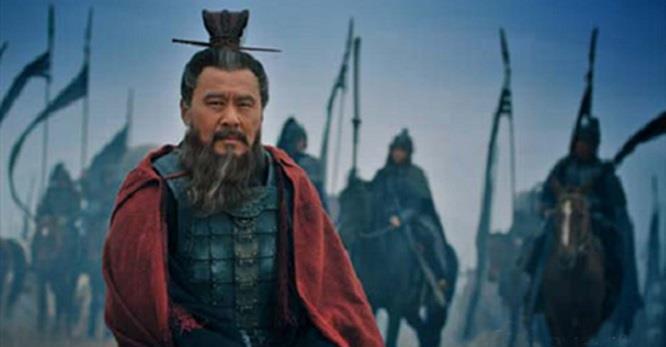In recent years, the term lieutenant has often appeared in people's field of vision, and this word was first used to refer to Cao Cao, who organized tomb robbery in order to prepare military salaries in history. However, the word tomb robber made Cao Cao very disgusted, so he derived the term "lieutenant jin". In the history of the Three Kingdoms, Cao Cao once stole a tomb for three years without going to the tomb, the army operated well in these three years, whose tomb can meet such a large expenditure of the army, what makes Cao Cao choose to be rich?

There are many opinions on the Internet about this, but the excavation of cultural relics proves that Cao Cao stole the tomb of Liu Wu, the prince of Liang. Liu Wu was a prince of the Liang state of the Western Han Dynasty, and the second son of Liu Heng, the Emperor wen of Han, and the brother of Liu Qi, the Emperor of Hanjing, and his mother was Empress Dou. This identity is very honorable at first glance, and the funeral goods are rich after death. First of all, his identity is destined to be different from ordinary people in his mausoleum, even if he does nothing before he dies, the funerary goods after death will be very rich. Funeral goods can cover the temporary expenses of the army, but three years of military pay is not a small amount, is the funeral of an ordinary prince and nobleman really enough?
Of course, Liu Wu was not an ordinary nobleman before he died, he can be said to be the "royal darling". In 153 BC, Liu Rongli was made crown prince. Because Liu Wu was a brother of Emperor Jing of Han and made great contributions, he was enfeoffed as a great power. The land in the fiefdom is fertile, the cities are lined up, and the people live in poverty. And he was the youngest son of Empress Dowager Dou, and he was naturally pampered. Others are rewarded by piece, and their rewards can even be recorded by pile. Liu Wu also built a large number of civil engineering, built himself a Dongyuan that occupied three hundred miles of land, and entered and exited the pomp and circumstance like a heavenly son. Liu Wu also recruited a wide range of talents, and the wealth brought to him by his advisers was also innumerable. Looking at Liu Wu in this way, he can be described as rich and invincible. If you want to have money, you must not only have a good source of income, but also plan to spend money. Liu Wu was never soft on spending money on himself, but he was very stingy with others. It is also understandable that it is human nature to be good to oneself. The richer he was, the more he cut the flowers, and in the long run, even a commoner could accumulate a lot of money, let alone empress dowager Dou's favorite youngest son?
It is true that Liu Wu was so wealthy before his death, but as a royal family, his funerary products also have specifications, even if they are doubly pampered and put more than a part, it will not be too much. Can this part of the funeral goods meet the military salary for three years? In fact, Cao Cao's tomb robbers were already notorious, and the tombs he had stolen were afraid that no one could count clearly, and perhaps he himself could not remember clearly. But those large and small cemeteries also brought him some wealth. How could someone as good at business as Cao Cao let the money flow out in vain?
According to historical records, Cao Cao did steal the tomb of Liu Wu, the Prince of Liang, in time, which is also in line with the fact that Cao Cao's army did not lack three years of military pay. But we don't know whether Cao Cao put all his money into it, or how much he embezzled to fill the vacancy. We can only see that in those three years, Cao Cao's army ate and drank without worry, was well trained, and the battle also rose sharply. Liu Wu's tomb quietly changed the history of the Three Kingdoms.